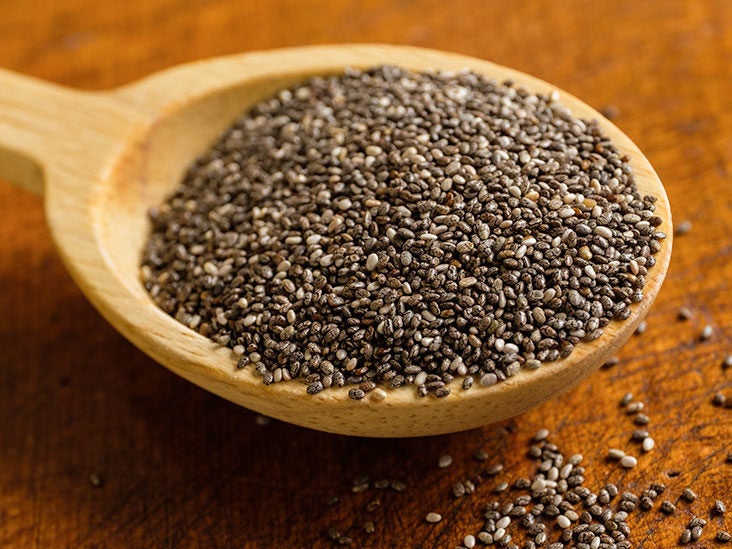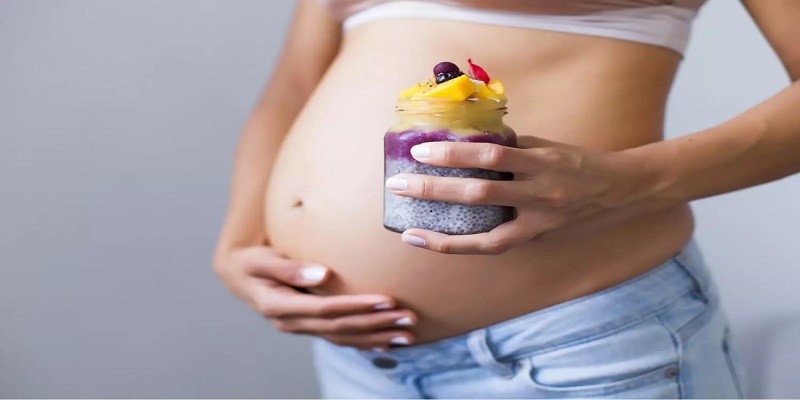Last Updated on February 14, 2023
Yes, you can drink chia seeds while pregnant. Chia seeds are packed with nutrients that are beneficial for both mom and baby, including omega-3 fatty acids, fiber, calcium, and iron. Plus, they’re easy to add to your diet – just mix them into water or juice, sprinkle them on top of cereal or yogurt, or add them to a smoothie.
- Talk to your doctor before adding chia seeds to your diet while pregnant
- This is especially important if you have any allergies or other medical conditions
- Chia seeds can be eaten whole or ground up and added to foods and drinks
- When adding chia seeds to drinks, start with a small amount and gradually increase as needed
- This will help you avoid any abdominal discomfort from the high fiber content of the seeds
- Be sure to drink plenty of fluids throughout the day when consuming chia seeds, as they can absorb a lot of water and cause dehydration if not enough fluid is consumed
Side Effects of Chia Seeds During Pregnancy
Chia seeds are an incredibly healthy food. They’re loaded with fiber, protein, and omega-3 fatty acids. But like any food, they can have side effects when consumed in large amounts or by certain people.
Here’s what you need to know about the potential side effects of chia seeds during pregnancy. Allergies Some people are allergic to chia seeds.
If you’re pregnant and have never eaten them before, it’s best to start with a small amount to see how your body reacts. Symptoms of an allergy include itching, swelling, and difficulty breathing. If you experience any of these symptoms after eating chia seeds, call your doctor immediately.
Digestive Issues Chia seeds are high in fiber which is great for keeping you regular but can also lead to digestive issues like bloating and gas if you eat too many. Start slowly with chia seeds and increase your intake gradually to avoid digestive discomfort.
Drinking plenty of water will also help reduce the risk of constipation or diarrhea. Blood Sugar Levels Chia seeds can also affect blood sugar levels because they slow down digestion and the absorption of carbohydrates.
This is especially important for pregnant women who are at risk for gestational diabetes.

Credit: www.medicalnewstoday.com
How Can I Take Chia Seeds While Pregnant?
Chia seeds are an excellent source of omega-3 fatty acids, fiber, and antioxidants. All of these nutrients are important for a healthy pregnancy. Omega-3 fatty acids are important for the development of your baby’s brain and nervous system.
Fiber can help prevent constipation, which is common in pregnancy. And the antioxidants in chia seeds can help protect your cells from damage. There are no known risks of taking chia seeds during pregnancy.
But as with all foods, it’s best to eat them in moderation. Start by adding a tablespoon or two to your daily diet. You can add them to smoothies, yogurt, oatmeal, or baked goods.
Is Chia Good for Pregnancy?
Chia seeds are a source of omega-3 fatty acids, which are important for pregnancy. They also contain fiber and protein. All of these nutrients are important for a healthy pregnancy.
Some research has shown that chia seeds can help improve blood sugar control during pregnancy. This is important because blood sugar levels that are too high or too low can be dangerous for both the mother and the baby. Chia seeds may also help reduce inflammation during pregnancy.
Pregnant women should talk to their doctor before adding chia seeds to their diet, as they can interact with some medications.
Which Seeds are Good for Pregnancy?
There are a lot of old wives’ tales about which foods to eat during pregnancy, but when it comes to seeds, there is some truth to the saying that they are good for you. Seeds are full of nutrients that are essential for both mother and child, including folate, iron, and omega-3 fatty acids. Here are some of the best seeds to eat during pregnancy:
Chia Seeds: These tiny seeds pack a big nutritional punch. They’re high in fiber, antioxidants, and calcium. All of these nutrients are important for pregnant women, as they help prevent constipation (a common problem during pregnancy), maintain bone health, and support the growing baby.
Flaxseeds: Like chia seeds, flaxseeds are also high in fiber and omega-3 fatty acids. Omega-3s are important for brain development in babies. In addition, the lignans in flaxseeds can help reduce the risk of certain cancers later in life.
Pregnant women should aim to get at least two tablespoons of ground flaxseed per day. Hemp Seeds: Hemp seeds contain all 20 amino acids (including the nine essential amino acids that our bodies can’t produce on their own), making them a complete protein source. They’re also rich in omega-3 fatty acids and magnesium – two nutrients that are often lacking in pregnant women’s diets.
Who Should Avoid Chia Seeds?
Chia seeds are safe for most people to eat. However, there are a few groups of people who should avoid them. These include:
-People with allergies to sesame or mustard seeds. Chia seeds are related to these two types of seeds, so if you’re allergic to either of them, it’s best to avoid chia seeds as well. -People with gastrointestinal issues such as Crohn’s disease or irritable bowel syndrome.
Chia seeds can absorb a lot of water and expand in the gut, which can exacerbate these conditions. -Pregnant women and young children. While there is no definitive evidence that chia seeds are unsafe for pregnant women or young children, they should be avoided simply because not enough is known about their safety in these groups.
Is it good or bad to eat chia seeds while pregnant?
Conclusion
Chia seeds have become a popular health food in recent years, but there is some debate over whether or not they are safe for pregnant women to consume. Some experts believe that chia seeds are safe for pregnant women to consume in moderation, as they are a good source of fiber and omega-3 fatty acids. However, other experts caution that chia seeds can contain high levels of mercury, which can be harmful to the developing fetus.
Ultimately, it is up to the pregnant woman to decide whether or not she feels comfortable consuming chia seeds.

